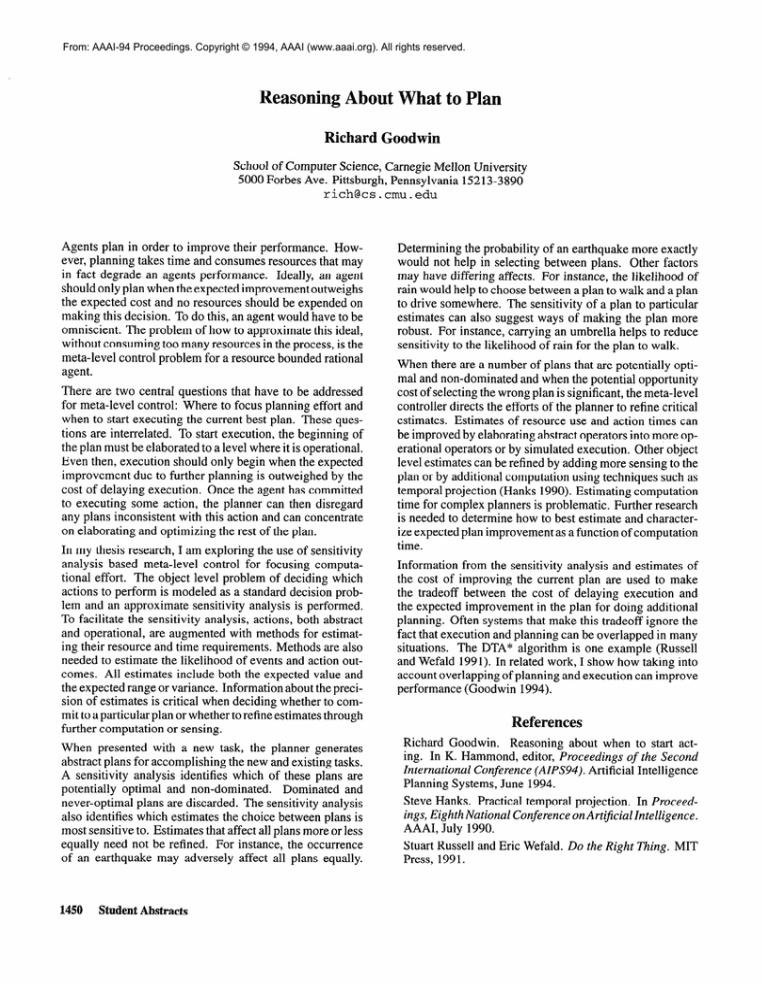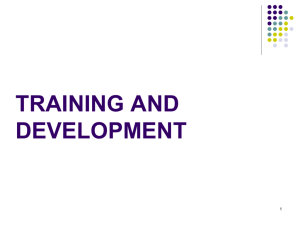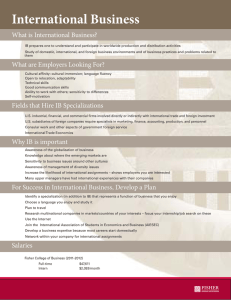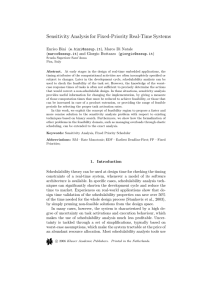
From: AAAI-94 Proceedings. Copyright © 1994, AAAI (www.aaai.org). All rights reserved.
Reasoning About What to Plan
Richard Goodwin
School of Computer Science, Carnegie Mellon University
5000 Forbes Ave. Pittsburgh, Pennsylvania 15213-3890
rich@cs.cmu.edu
Agents plan in order to improve their performance. However, planning takes time and consumes resources that may
in fact degrade an agents performance.
Ideally, an agent
should only plan when the expected improvement outweighs
the expected cost and no resources should be expended on
making this decision. To do this, an agent would have to be
omniscient. The problem of how to approximate this ideal,
without consuming too many resources in the process, is the
meta-level control problem for a resource bounded rational
agent.
There are two central questions that have to be addressed
for meta-level control: Where to focus planning effort and
when to start executing the current best plan. These questions are interrelated.
To start execution, the beginning of
the plan must be elaborated to a level where it is operational.
Even then, execution should only begin when the expected
improvement due to further planning is outweighed by the
cost of delaying execution. Once the agent has committed
to executing some action, the planner can then disregard
any plans inconsistent with this action and can concentrate
on elaborating and optimizing the rest of the plan.
In my thesis research, I am exploring the use of sensitivity
analysis based meta-level control for focusing computational effort. The object level problem of deciding which
actions to perform is modeled as a standard decision problem and an approximate sensitivity analysis is performed.
To facilitate the sensitivity analysis, actions, both abstract
and operational, are augmented with methods for estimating their resource and time requirements. Methods are also
needed to estimate the likelihood of events and action outcomes. All estimates include both the expected value and
the expected range or variance. Information about the precision of estimates is critical when deciding whether to commit to a particular plan or whether to refine estimates through
further computation or sensing.
When presented with a new task, the planner generates
abstract plans for accomplishing the new and existing tasks.
A sensitivity analysis identifies which of these plans are
potentially optimal and non-dominated.
Dominated and
never-optimal plans are discarded. The sensitivity analysis
also identifies which estimates the choice between plans is
most sensitive to. Estimates that affect all plans more or less
equally need not be refined. For instance, the occurrence
of an earthquake may adversely affect all plans equally.
1450
Student Abstracts
Determining the probability of an earthquake more exactly
would not help in selecting between plans. Other factors
may have differing affects. For instance, the likelihood of
rain would help to choose between a plan to walk and a plan
to drive somewhere. The sensitivity of a plan to particular
estimates can also suggest ways of making the plan more
robust. For instance, carrying an umbrella helps to reduce
sensitivity to the likelihood of rain for the plan to walk.
When there are a number of plans that are potentially optimal and non-dominated and when the potential opportunity
cost of selecting the wrong plan is significant, the meta-level
controller directs the efforts of the planner to refine critical
estimates. Estimates of resource use and action times can
be improved by elaborating abstract operators into more operational operators or by simulated execution. Other object
level estimates can be refined by adding more sensing to the
plan or by additional computation using techniques such as
temporal projection (Hanks 1990). Estimating computation
time for complex planners is problematic. Further research
is needed to determine how to best estimate and characterize expected plan improvement as a function of computation
time.
Information from the sensitivity analysis and estimates of
the cost of improving the current plan are used to make
the tradeoff between the cost of delaying execution and
the expected improvement in the plan for doing additional
planning. Often systems that make this tradeoff ignore the
fact that execution and planning can be overlapped in many
situations. The DTA* algorithm is one example (Russell
and Wefald 1991). In related work, I show how taking into
account overlapping of planning and execution can improve
performance (Goodwin 1994).
References
Richard Goodwin.
Reasoning about when to start acting. In K. Hammond, editor, Proceedings of the Second
International Conference (AIPS94). Artificial Intelligence
Planning Systems, June 1994.
Steve Hanks. Practical temporal projection.
ings, Eighth National Conference onArtijkia1
AAAI, July 1990.
In ProceedIntelligence.
Stuart Russell and Eric Wefald. Do the Right Thing. MIT
Press, 1991.







